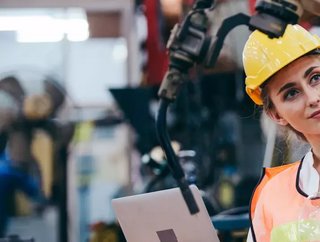ABB Group Develops RPA Solutions for Construction

There is growing concern about the technical skills shortage among industries - likely an effect of the Covid-19 pandemic. As a result of this, industries are having to adapt to meet demands through the use of technology.
ABB Group is providing much-needed developments in robotic process automation (RPA), which will benefit the construction industry during a predicted skills ‘slump’. Results from a global survey of 1,900 construction businesses in Europe said 91% believe they will face a skills crisis over the next decade.
Recently the company has announced it’s developing solutions to address these challenges; an example of this is modular construction.
Time and Cost-Efficient
Modular construction is becoming more popular as a fast way to construct large and complex structures. It provides the ability to build complete rooms off-site. However, most companies carrying out these types of projects have found it difficult to maintain cost-efficiency. An article on Construction Global talks more about modular construction and how it is changing
In response to a shortage of technical skills, which is set to happen over the next 10 years, ABB Group provides RPA solutions to fabricate large components off-site, handle materials on-site and 3D print houses and bespoke structures. The use of robotics allows for more cost-effective construction by excluding the need for hiring more skilled personnel while providing an automated approach to production quality and waste management.
ABB Group is positive the developments will bring value to the industry. “With so few construction businesses using automation today, there’s huge potential for us to transform the industry through robotics. Unlike building cars or assembling electronics, many techniques used in construction haven’t changed for generations, so we are developing new solutions to address key industry challenges,” said Sami Atiya, President of ABB’s Robotics and Discrete Automation Business Area.
According to the survey, 81% of construction businesses said they would consider implementing robotics into their processes within the next 10 years. Around 55% of companies in the construction industry use robots. To put this into perspective, 79% of manufacturing companies use it, and 84% of those in the automotive industry.
A Sustainable Approach
ABB Group explains that there has been a reduced uptake in construction jobs due to an assumption that careers in the sector are dangerous. According to the Health and Safety Executive, from 2019 to 2020, roughly 29% of non-fatal injuries at work in Great Britain are caused by slips, trips or falls on the same level. 19% of injuries in this category were caused by handling or heavy lifting.
Robotics will promote safer construction practices by handling large or heavy loads, limiting the need for personnel to work in unsafe areas and providing safer construction methods on and off-site. “A new focus on health, safety and sustainability are catalysts for investment in robotics, while the shrinking pool of skilled labour means the construction industry needs robots to help keep pace with the challenges of urbanization and climate change,” said Atiya.
The use of RPA also provides a solution to waste management, allowing businesses to limit their excess resources early on in the design stage. “We are putting our expertise and industry-leading portfolio of robots and digital tools at the centre of the construction industry value chain with automation solutions for faster, more affordable and sustainable construction, while supporting the industry’s labour shortage, by handling large and heavy loads, accessing dangerous spaces and enabling new, safer ways of building.”
Current Applications of RPA
ABB is currently working in partnership with various leading universities to develop automated construction technologies including ETH Zurich, a leading Swiss research university. As a result of this work, a laboratory was established for researching collaborative robotic digital fabrication in architecture.
Other projects include piloting the latest RPA for the assembly of walls, floor and ceilings for multi-story affordable homes. US company, Autovol has implemented the technology into its Schindler Lift installation and Intelligent City for its prefabricated modular homes - experiencing a 15% increase in efficiency and 38% faster production.
Technical Director for Skanska Construction, Ulf Håkansson, commented on the importance of robotics and the lack of skilled personnel in the industry. Skanska has applied robotics to welding and has experienced improved quality, increased productivity and a safer workplace. He explains how the lack of skills means “Allocating these tasks to robots can address this, enabling us to deploy our workers more effectively. Automation also suits the experience and imagination of the next generation of engineers, who have grown up with technology and will be invaluable in helping us find new ways to use robots in our business.”
For more automation and technology insights, check out Technology magazine.
- OpenText AI: Empowering Businesses in Information ManagementDigital Transformation
- Microsoft in Japan: $2.9bn Investment to Boost AI & CloudCloud & Cybersecurity
- Google Cloud Next 2024: Pushing the Next Frontier of AIAI & Machine Learning
- Top 100 Women 2024: Ruth Porat, Google - No.2Digital Transformation






